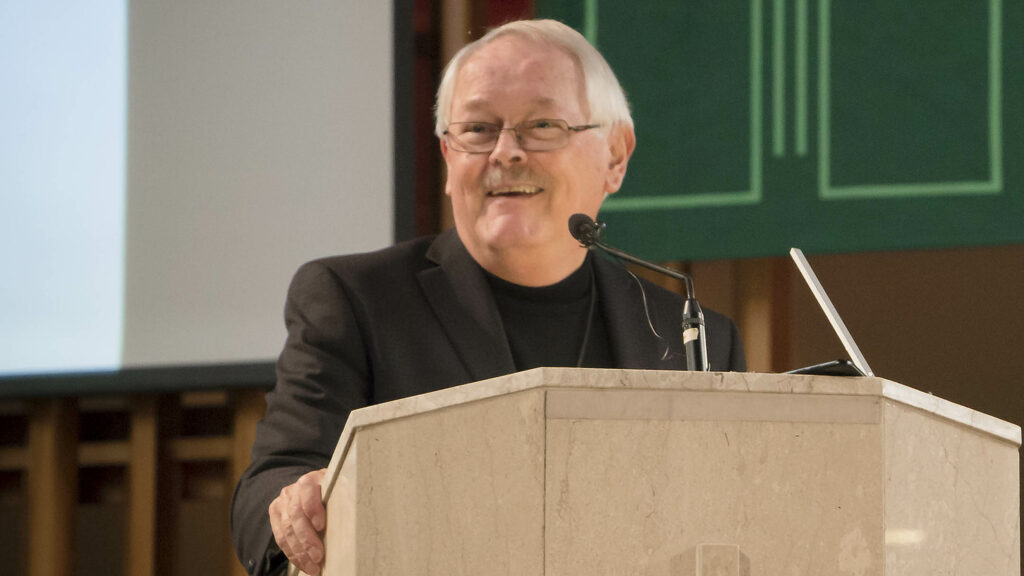There are still people everywhere who believe there’s no longer any issue regarding the status of women. Widespread is the belief that today, at least in democratic countries, women enjoy full equality with men. As well, for many, feminism is a bad word, politically charged, representing a radical liberal ideology whose agenda is at odds with traditional family values. What’s to be said about this?
First off, feminism, like Christianity, is a wide term that includes both healthy and strident expressions. There are good feminists and there are strident ones, as is true too of Christians. Be that as it may, my main purpose here is to suggest that nothing can be further from the truth than the naïve belief that gender equality has been achieved – anywhere. It hasn’t, not by a long shot.
Why do I say this? Before offering more substantial evidence, let me highlight just one example. I live in the West, in the United States, in America, in Texas, in San Antonio (a very Christian and compassionate city), in a democratic culture that prides itself and believes itself to be a beacon to the world vis-à-vis human rights and women’s equality. Yet, as I read our daily newspaper, rarely does a single week go by wherein there isn’t the report of a woman dying because of domestic violence. Moreover, these are only reports of women being murdered by a domestic partner; the numbers are no doubt astronomically higher in terms of women suffering physical and sexual abuse in our homes. Note, in 90% of these cases it’s the woman who dies.
However, to substantiate the claim that women still suffer, massively and disproportionately, from inequality, let me cite a series of comments from a recent book Awakening, by Joan Chittister:
- “The fact is that two-thirds of the poor of the world are women, two-thirds of the illiterate of the world are women and two-thirds of the hungry of the world are women. Oppression of half the human race cannot be explained by accident. … Women are most of the poor, most of the refugees, most of the uneducated, most of the beaten and most of the rejected of the world.”
- “The history of women is one of historical and universal oppression, discrimination and violence. In Buddhism, women who have led lives of total spiritual dedication are trained to take orders from the youngest of the male monks. In Islam, women are required to veil their heads and cover their bodies to express their unworthiness and signal the fact that they belong to some man. In Hinduism, women are abandoned by their husbands for higher pursuits and larger dowries or held responsible for his death by virtue of a woman’s bad karma. In most forms of Judaism, women are denied access to religious ritual and education. In Christianity, until recently and in many sectors yet, the legal rights of women have been equated with those of minor children; wife-beating is protected by domestic right and even the spiritual life of women is dictated, directed, and controlled by the men of the faith.”
Moreover, Chittister highlights an irony that generally goes unrecognized and, worse still, is often used to camouflage our failure to accord women equal status. Here’s the irony. Many of us nurture, consciously or unconsciously, an attitude that might aptly be called a romantic feminism wherein we over-idealize and over-exalt women and, ironically but understandably, by that very token end up denying them full equality. This is how Chittister puts it: “on no other class, surely has so much poetry, so much music, so many flowers, so much adulation, so much tolerance, so much romantic love and so little moral and intellectual, spiritual and human respect been lavished.” In essence, an over-idealization of women, tells them: you’re so special and wonderful that you shouldn’t be treated in same way as men!
I’m old enough to have lived through a couple of generations of feminism. In the 1980s and 1990s, when I taught theology in a couple of universities, feminism, both healthy and strident, was very strong within the faculty and in much of the student body. I confess that I wasn’t always at ease with it, particularly with its often-militant tone. I sensed its legitimacy, even as I feared its stridency.
Well, times have changed. Today, in the classrooms I teach, more and more, I’m meeting women, younger women, who have little sympathy or use for the feminism of the 1980s and 1990s. There’s almost a patronizing attitude towards those women who pioneered the feminist agenda. Partly, it’s a generational thing that’s understandable. Partly, however, it’s also a naiveté, an unfounded belief that the battle has been won, that women have now achieved full equality, that there’s no need any longer for the old-style battles.
So, when I read Chittister’s grim statistics and read about domestic violence almost daily in our newspapers, I long for those feisty feminists I once met in classrooms and at faculty meetings all those years ago.

